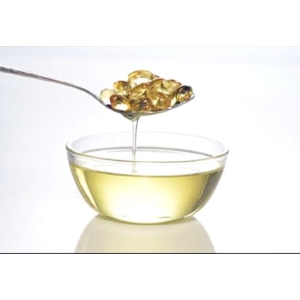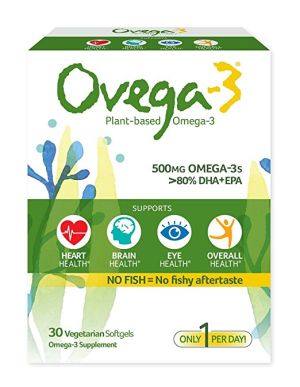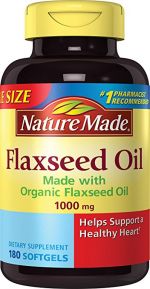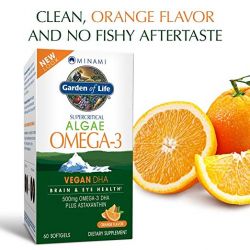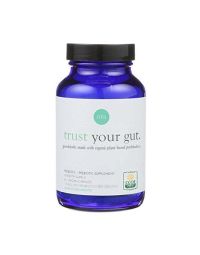Fish oil supplements contain beneficial fatty acids that offer many health benefits. For vegans, non-fish alternatives exist that can provide similar nutrition to standard fish oil supplements.

Fish Oil Contains Beneficial Fatty Acids
Fish oil contains beneficial fatty acids, or “good fats.” These fall into the categories of omega-3 fatty acids and omega-6 fatty acids. Both of these types of molecules are long organic chains with an acid group on one end. Two types of omega-3 fatty acids are found predominantly in marine oils such as fish oil: docosahexaenoic acid (DHA) and eicosapentaenoic acid (EPA). A third type, α-linolenic acid (ALA), is commonly found in plants.1

Omega-3 Fatty Acids are Important for Your Health
Your body requires omega-3 fatty acids for many important functions. Many biomolecules that your body synthesizes for activities ranging from cell signaling to blood clotting are made from DHA and EPA. DHA is a major structural component of many of your organs, particularly your brain, skin, and eyes. Both DHA and EPA are especially important for the proper growth and development of infants and children.2
The benefits of supplementing with omega-3 fatty acids, largely in the form of fish oil, are numerous. Lower triglycerides, higher high-density lipoprotein (HDL, “good cholesterol”), better mental health, and stronger bones have been reported by people taking fish oil supplements. By taking extra omega-3 fatty acids, you can even enjoy lower systemic inflammation, with benefits like improved arthritis symptoms and a lowered risk of cardiovascular disease.3

Alpha-Linolenic Acid is a Good Vegan Source of Omega-3 Fatty Acids
ALA is a shorter fatty acid that is similar to DHA and EPA. It can be obtained from plants, especially those with a high oil content. Like other animals, your body’s metabolism can convert ALA into both DHA and EPA using its own enzymes. For vegans and vegetarians, consuming extra ALA is important to boost your body’s natural production of DHA and EPA without eating animal products. This is especially important for infants and children who are still developing.2

Vegan Omega-3 Fatty Acid Supplements
Marine algae is the one non-animal source of plentiful DHA and EPA. You may want to take supplements derived from algae in order to maximize your DHA and EPA intake. Otherwise, you can find plenty of vegan ALA supplements on the market. Here are a few that are highly rated:
[1] Davis BC, Kris-Etherton PM. 2003. Am J Clin Nutr. Sep; 78(3 Suppl):640S-646S. “Achieving optimal essential fatty acid status in vegetarians: current knowledge and practical implications.” https://www.ncbi.nlm.nih.gov/pubmed/12936959
[2] Messina V, Magels AR. 2001. J Am Diet Assoc. Jun; 101(6):661-669. “Considerations in planning vegan diets: children.” https://www.ncbi.nlm.nih.gov/pubmed/11424545
[3] NCCIH. 2018. NIH, Bethesda, MD. “Omega-3 Supplements: In Depth.”
https://nccih.nih.gov/health/omega3/introduction.htm#hed4
-
Vegan Probiotics
By Dr. KarenMarch 8, 2022

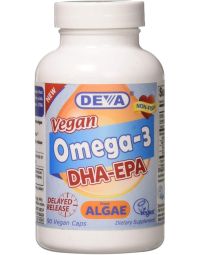
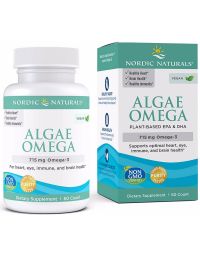
Search the blog
Article Categories
- All Articles (95)
- Rating Charts (1)
- Beauty & Skincare (17)
- FAQ (0)
- Hair Care (9)
- Health & Wellness (12)
- Anti-Aging (4)
- Kid's Health (0)
- Makeup (2)
- Men's Health (2)
- Oral Care (3)
- Sunscreen (7)
- Skin Tools & Treatments (10)
- Supplements (26)
- Videos (0)

